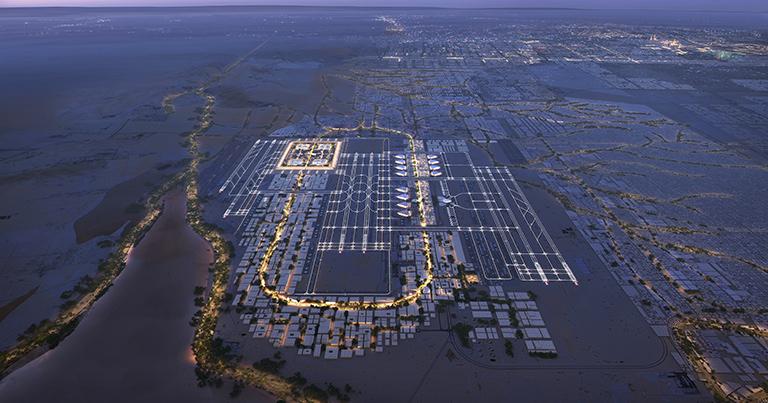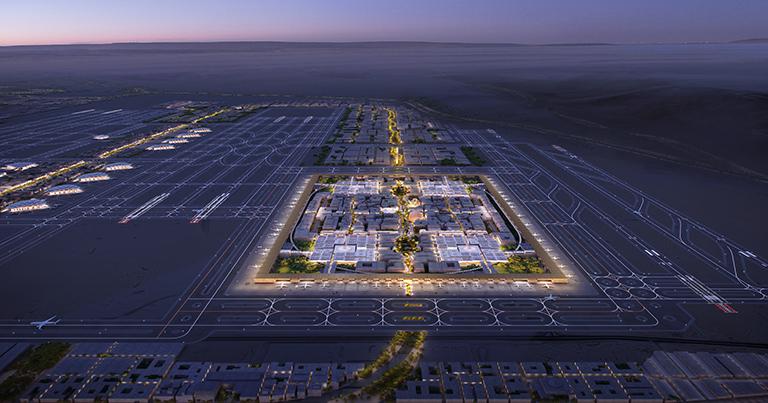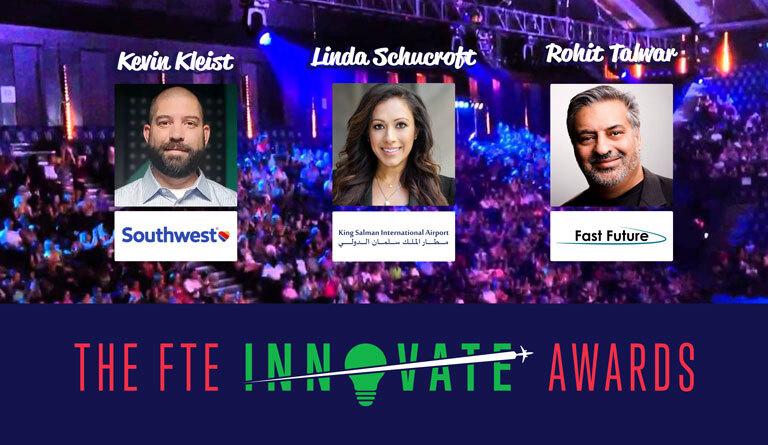Riyadh’s new King Salman International Airport will be among the world’s biggest when it opens in 2030 and is a key development in the rise of Saudi Arabia’s air transport sector. In this interview, ahead of her participation at the co-located FTE EMEA and FTE Ancillary & Retailing events (Dublin, 11-13 June 2024), Linda Schucroft, Vice President Innovation and Customer Experience, shares details of King Salman International Airport’s focus on world-class technology and first-to-market AI-powered platforms to customise and enhance the customer experience.
Register for FTE EMEA and FTE Ancillary & Retailing – one registration provides access to both events >>
Schucroft is speaking at the co-located FTE EMEA and FTE Ancillary & Retailing events in a session titled ‘New ways of thinking to drive unique and inspiring customer experiences – inspiration from industry leaders & disruptors in parallel sectors’.
“At King Salman International Airport, we are designing our airport with the customer in mind with everything we do,” Schucroft begins. “We are currently in the early concept design stage of our masterplan, and one of the first artefacts we worked on and finalised, as a customer-centric organisation, is identifying the personas of our airport. Our architects and engineers are using this as a reference point for everything we do. Our goal is to transform aviation, one of the ways we will be doing this is through customised journeys for our passengers. Most airports offer two distinct experiences – business and economy. We recognise that people have different needs depending on the purpose of their trip and who they are travelling with. Therefore, we will be introducing a new concept where these experiences will be tailored to all of our passengers in both the physical and digital worlds, creating unique experiences customised to their needs.”
The airport is not only focusing on the physical act of designing and constructing buildings and runways, but also the digital element from infrastructure to experience. “We will have world-class technology and first-to-market AI-powered platforms to customise and enhance the customer experience,” says Schucroft.
King Salman International Airport is expected to be one of the biggest in the world, with an area of 57 square kilometres and six parallel runways. It will accommodate up to 120 million passengers by 2030 and 185 million by 2050. In addition, an airport city will be developed, incorporating several types of assets, including residential, hospitality, retail, entertainment, office, logistics, and industrial. The ambition is for the airport and airport city to be a destination for both passengers and non-passengers.
Unique partnership with Riyadh Air to “securely share data to significantly enhance the passenger experience”

Developing a new airport allows the freedom to think through and introduce human-centric technology from the ground up. Existing airports face challenges when introducing things like sensors, data sharing with concessionaires and physical space constraints, which King Salman International Airport is able to avoid. “Our partnership with Saudi Arabia’s innovative new airline, Riyadh Air, presents a unique opportunity,” Schucroft explains. “Together, we can collaborate from the outset to tailor the passenger experience, creating a model that benefits everyone. Traditionally, airlines and airports share limited data. By establishing core principles from the beginning, we can securely share data to significantly enhance the passenger experience.”
While the term ‘seamless’ gets used a lot in our industry, it is the core principle for the new airport. “No airport has truly achieved a seamless experience, although some are doing great work towards this shared industry vision,” says Schucroft. “With the opening of our iconic terminal, we aim to be the first to deliver a truly seamless experience with our ambition of no queues and no stress – a unique airport experience. In a few years, we will unveil our first facilities, the private aviation terminal and a low-cost carrier terminal – both designed to deliver a best-in-class efficient experience. We will minimise touchpoints wherever possible and streamline processes without compromising security or safety.”
KSIA embracing AI, Robotics and IoT and preparing for emerging tech of the future

Artificlal Intelligence (AI), Robotics and Internet of Things (IoT) are the three key themes of the FTE Digital, Innovation & Startup Hub in 2024, and Schucroft explains that King Salman International Airport is embracing these cutting-edge technologies. “We can’t open a world-class airport without using all of these things. We are setting the foundation and building our digital infrastructure to not only be able to handle AI, IoT, sensors, robots and autonomous movers, but also to handle emerging technology of the future that we can’t even anticipate will be here in 2040.”
Indeed, robotics and automation is among the tech that Schucroft feels has the potential to truly transform the passenger experience, such as “autonomous people movers, where you don’t have to think, you can sit and experience the journey and world around you and it can take you to your gate and eat, browse or shop anywhere you need to in-between”.
“The use cases are endless, with the most obvious being for passengers with reduced mobility (PRMs), but also for any individual or families with young kids,” Schucroft adds. “AI-powered platforms will bridge the gap between the physical world and your travel experience. Imagine pre-ordering your favourite Starbucks drink or selecting souvenirs for your family the night before your trip, all through our platform. Upon arrival, these items will be waiting for you, ready for pick-up as you disembark. This eliminates unnecessary queues and lets you focus on enjoying your journey.”
FTE Dublin: “From the networking events to the opportunity to hear from the industry’s most innovative leaders, the event promises to be truly exceptional”

At the epicentre of the co-located FTE EMEA and FTE Ancillary & Retailing events are the FTE Innovate Awards. The region’s largest and most respected innovation competition features three categories: Best New CX Concept, Most Innovative Airline Initiative, and Most Innovative Airport Initiative, and Schucroft is on the judging panel alongside Kevin Kleist, Senior Emerging Trends Advisor, Southwest Airlines, and Rohit Talwar, CEO, Fast Future.
Industry stakeholders will pitch on-stage in Dublin in an effort to impress our judges and audience, whose all-important votes will decide who wins. “In my opinion it would be great to see things that support what human beings are really looking for regardless of their generation – they want to be connected, they want information, options, and finally they want to be able to make quick and sustainable decisions within a matter of seconds,” Schucroft comments. “Solutions that support sustainability, which is important not just to us as King Salman International Airport, but for the aviation industry as a whole.” Looking ahead, Schucroft is eager to participate in the co-located FTE EMEA and FTE Ancillary & Retailing events in Dublin in June. “FTE consistently delivers a fantastic show. From the networking events to the opportunity to hear from the industry’s most innovative leaders, the Dublin event promises to be truly exceptional. And finally, being able to share the phenomenal story of King Salman International Airport (KSIA) and HRH Crown Prince Mohammad Bin Salman’s vision for 2030, and illustrate how KSIA will serve as a platform to be a key driver of the vision, showcasing the very best of Saudi Arabia to the rest of the world.”
Register for FTE EMEA and FTE Ancillary & Retailing – one registration provides access to both events >>





